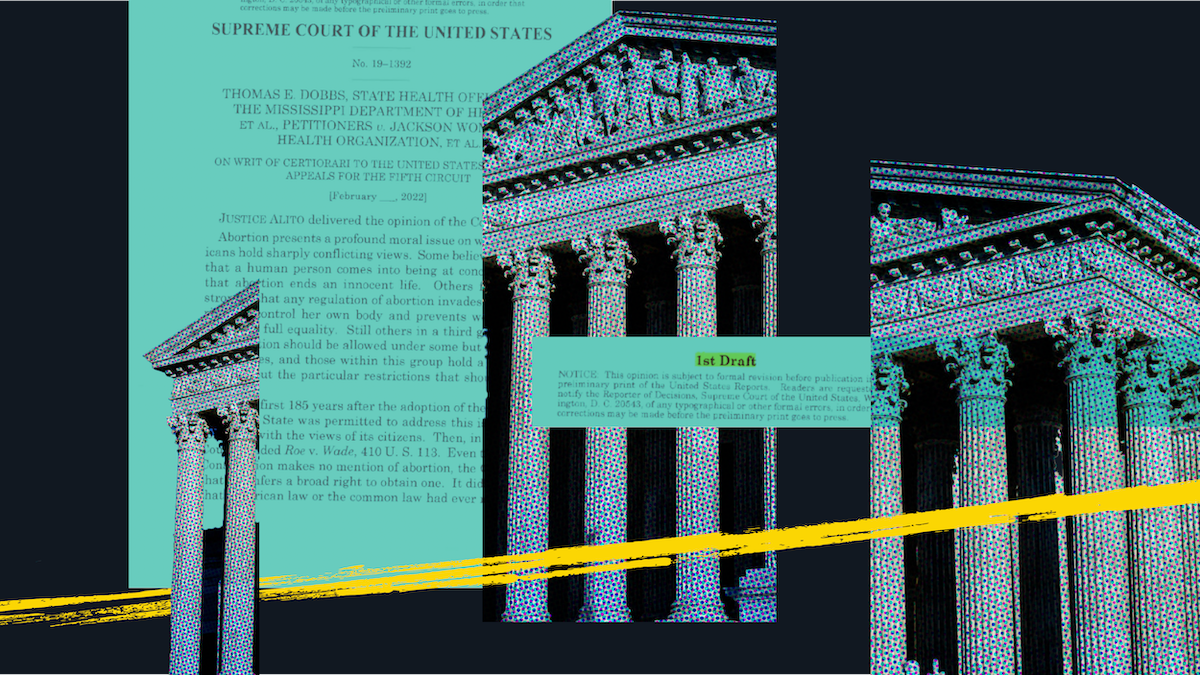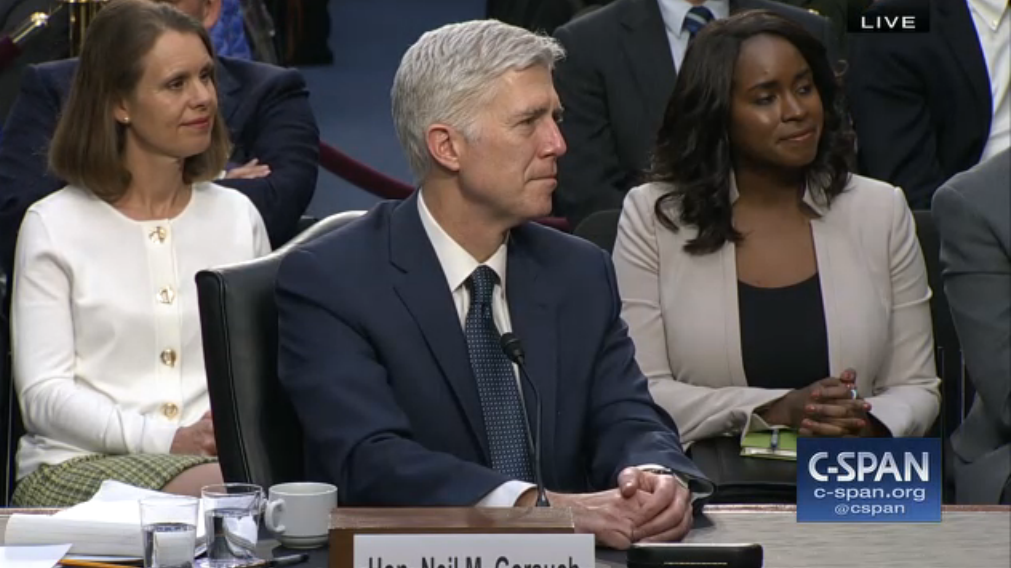Catching Our Breath After the Dobbs Leak: What This Means and What To Do Now

On Monday night, a draft of the Supreme Court’s decision overturning Roe v. Wade was leaked to the public, and our hearts collectively stopped. Anyone who cares about the fundamental right to abortion will never forget this moment, nor the visceral physical reaction of our bodies as our minds registered the news: hands shaking, face on fire, eyes frantically darting around the screen, heart stopping, we all stopped breathing.
We knew this could happen, but the reality of it was no less jarring. For many of us—queer people, immigrants, people of color, disabled people—this sense of loss may seem strangely familiar. If you felt that when you heard the news, you are not alone. And you are not alone as we face the battles ahead.
To be clear, this was a draft opinion, meaning the opinion is not yet official and abortion is still legal. If you have an appointment scheduled for an abortion, do not cancel it. If you need an abortion, you can still get one. Abortion is still legal. Spread the news. Tell everyone you know: abortion is still legal. And we’re doing everything we can to keep it legal.
For too many people, the legal right to abortion, underpinned by Roe, has never been enough, but this news is no less alarming. Many folks, especially those living in states where abortion access is extremely limited, are already living in a post-Roe world. And it’s exactly these communities that should guide the path forward. We have the power to save ourselves, and we have proven time and time again that our resilience is unmatched.
The release of this draft opinion was unprecedented. Never before has an early version of a landmark decision of the Supreme Court been leaked to the public by an individual privy to its most confidential contents (including the Justices and their clerks). Regardless of the intentions of whoever leaked the document, we now know that Justice Alito is likely writing the majority opinion overturning Roe in Dobbs v. Jackson Women’s Health Organization, and he is hell-bent on decimating Roe more aggressively than we ever thought possible. The draft is an indictment of Roe, the civil rights victories that made Roe possible, and Roe’s continued impact on both everyday lives and the hard-fought liberties it has since strengthened.
We won’t get into the minutiae of Justice Alito’s woefully appalling meanderings on the future of Roe (aka the draft opinion) now, but some notable highlights include:
- Broad sweeping disparagement of the right to abortion, which we have fundamentally relied on for nearly half a century.
- Complete disposal of the right to abortion that goes to the core of the bodily autonomy, equality, and dignity of people capable of pregnancy.
- Alito likening Roe to Plessy v. Ferguson, a case overturned by Brown v. Board of Education that upheld segregation in the United States and left a shameful mark on our nation’s jurisprudence. Given that Black women and people of color suffer most from lack of access to abortion in the United States, this correlation is nothing less than despicable and racist.
- Language signaling an intent to come for every single fundamental “liberty” right, beyond abortion, not explicitly mentioned in the constitution (ya know, that document ratified in 1788 when slavery was legal and only white men had the right to vote). These rights include the right to same-sex marriage, the right to contraception, and the right to bodily autonomy.
Make no mistake, this draft opinion is radical, adopting the most extremist talking points from anti-abortion groups. It conveniently does not mention the lived experiences of the one in four women who have an abortion by the time they reach 45—and this doesn’t even cover the full spectrum of people who have and need abortions. The opinion disregards the lived experiences of those who have historically and systemically been denied access to abortion, drastically impacting the lives, safety, livelihood, and health of Black, indigenous, low-income, LGBTQIA+, and disabled people. Beyond Roe, the Court’s draft opinion signals to our other beloved communities in this fight that their rights are on the line too.
So what do we do now? We cry, we catch our breath, we take care of each other, and then try our best to keep going. But most importantly: we donate to our local abortion funds and independent clinics. Abortion funds and practical support funds need our support now more than ever, as they try to provide resources to folks across the country seeking abortion in this scary, confusing moment and in the face of various violent abortion restrictions. Independent abortion clinics also need our support now so they can keep their doors open to patients.
We must keep responding in blazing outrage to this draft opinion. We must demand accountability from our local, state, and federal representatives to act fast to protect abortion. We must hold our communities close, leaving room for mourning, for righteous anger, and for whatever little moments of joy and community we can find in the spaces between.




